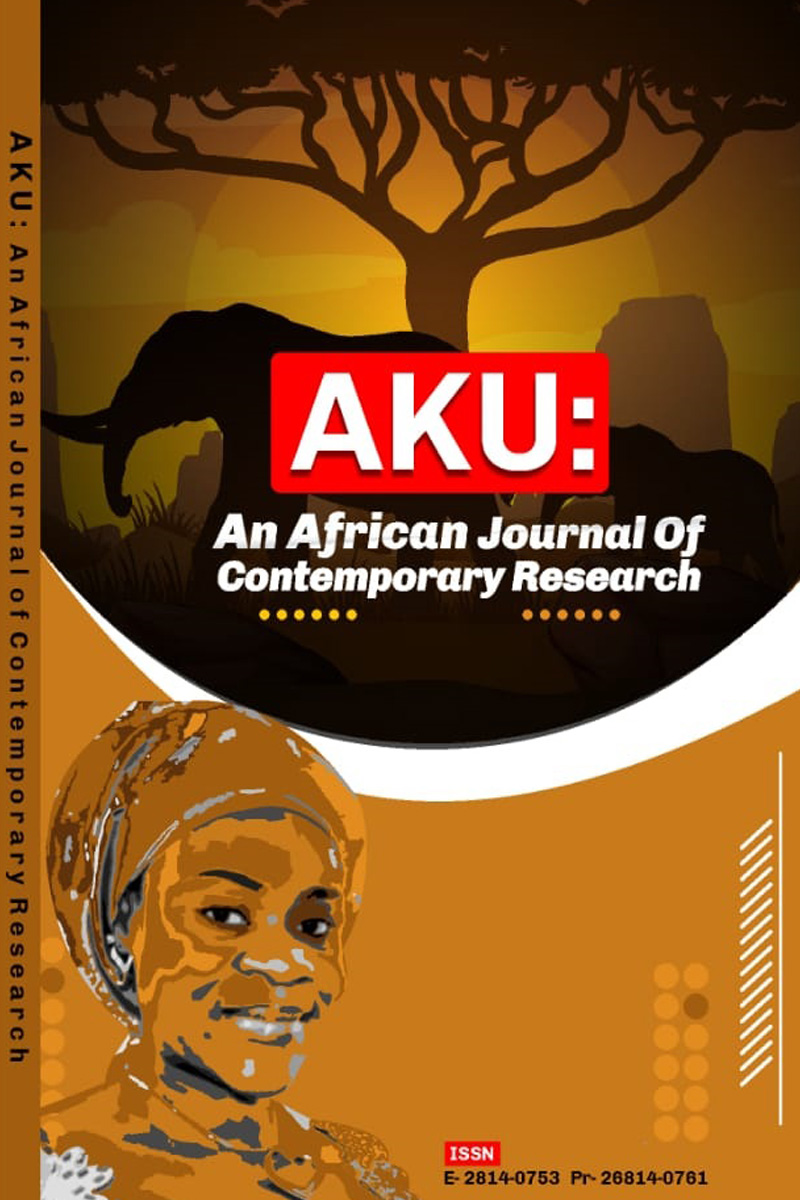 AKU - An African Journal of Contemporary Research (AAJCR) (Vol. 2 No. 1, 2021)
ENVIRONMENTAL CRISIS AND BIBLE-BASED ENVIRONMENTAL MANAGEMENT
AKU - An African Journal of Contemporary Research (AAJCR) (Vol. 2 No. 1, 2021)
ENVIRONMENTAL CRISIS AND BIBLE-BASED ENVIRONMENTAL MANAGEMENT
ABSTRACT
Economic growth, social progress and sustainability are dependent upon the health of the natural environment and ecosystems. The ecosystems and their environmental assets such as fertile soils, clean water, forests and biodiversity are God’s gift to mankind, source of income and support for livelihoods. They provide services to the society, such as contributions to public health, help drive economic growth, and maintain the biological foundation for human and nonhuman life. Thus this imposes great responsibility for effective management and sustainability. In view of this, traditionally, Africans effectively protected and safeguarded their natural habitat and ecosystem based on sound African environmental ethics. However, in recent times, the reverse has been the case. Instead of effective management and sustainability of the ecosystem and environmental assets, there are frequent cases of abuse, mismanagement and exploitation. This makes one to wonder as to what has become of the old African environmental ethics and why Africans are now experiencing acute environmental challenges which have impacted negatively on humanity and the rest of the ecosystem. A sociological research undertaken reveals that the interplay of multiple variables such as overarching human greed, materialism, selfishness, capitalism, wasteful consumption patterns and reckless disposal of waste are the major recipes for environmental crisis in Nigeria. Aside all these anthropogenic causes of environmental crisis, a new dimension to the crisis has emerged. It revolves around some category of human beings who have lost their sense of human values, morality and decency. In their bid to ‘dominate’ and ‘subdue’ the earth have reduced the planet’s ability to provide a healthy environment for the present and future generation. This calls for serious concern. Forestalling or mitigating further harm is the major thrust of this paper. Premised on Integrated Natural Resources Management (INRM) principles, the paper posits restoring effective environmental management strategy to forestall further environmental crisis. Eco-theology is advocated. It promotes accountability, positive lifestyle, and caution against wastage. It provides the key to abundance and absence of scarcity based on biblical principles. It is interdisciplinary and interreligious with a global perspective. It is revolutionary and engenders sustainable use and management of natural resources.

